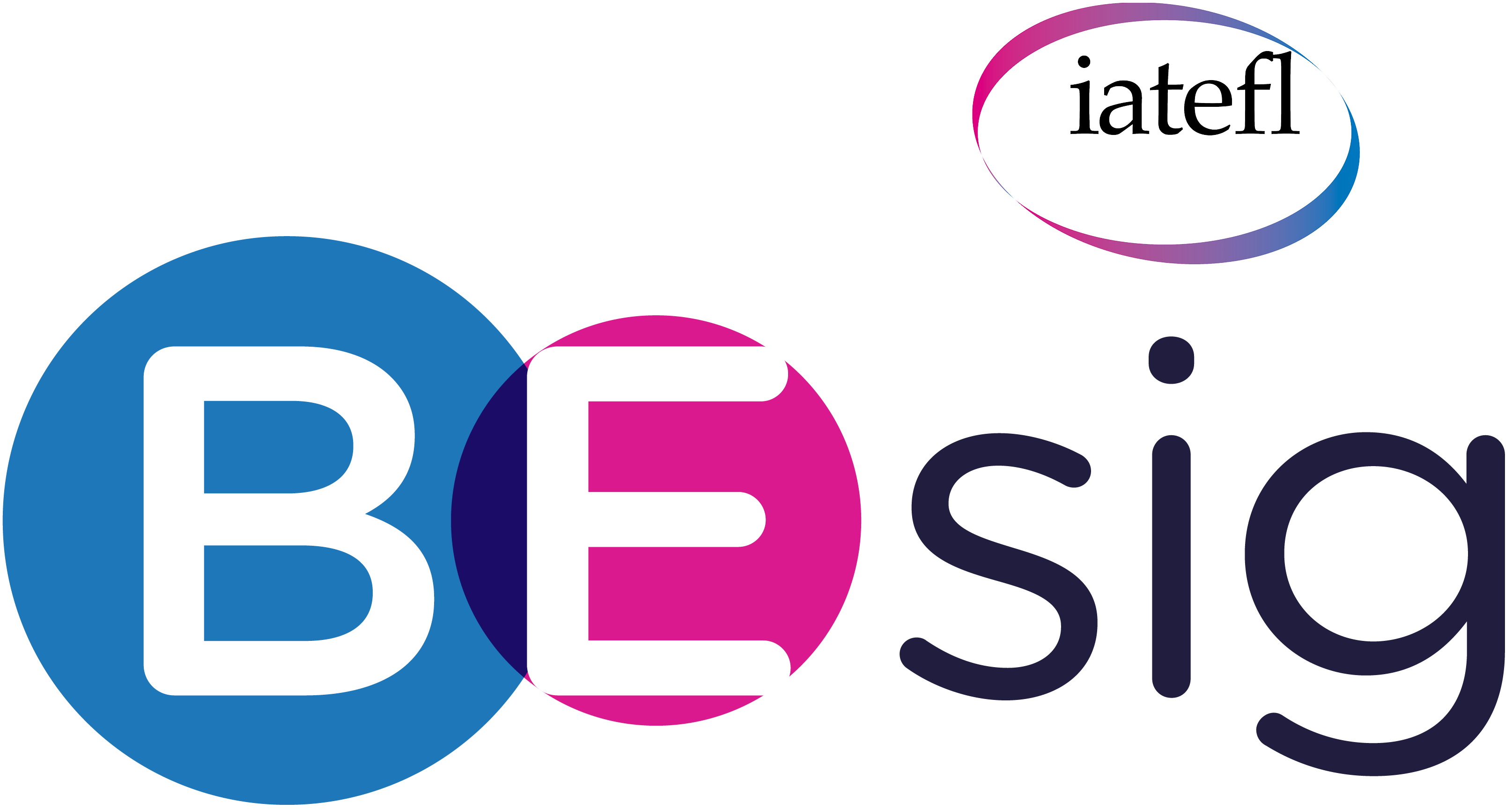Information about selected past events
For over 30 years, IATEFL BESIG has organized an Annual Conference, which usually takes place in November. We have also organized summer symposia (May/June), events at the IATEFL Annual Conference (March/April) and events held purely online.
These events ensure that IATEFL BESIG plays a prominent role in bringing together business English professionals from a wide range of teaching contexts and international locations.
This is a selection of some of our past events in reverse chronological order (click on the titles below to access the information and links):

Here is what IATEFL BESIG has done in the past:
(Full access to simulcasts, slides, pdfs etc. is available to MEMBERS-ONLY)
2022 Gdansk (annual conference)
Our 35th IATEFL BESIG Annual Conference took place at the Gdansk University of Technology – Language Centre, Gdansk, Poland from 13:00 CET on Friday, 11 November to 14:00 CET Sunday, 13 November 2022. The conference theme was “Business English Now”.
Click here for the conference programme: Gdansk conference programme
2022 Pre-Conference Event, Showcase and Open Forum at the IATEFL 55th International Conference (in Belfast)
IATEFL BESIG’s Pre-Conference Event (PCE), ‘How to build your own course for your particular context’ took place on Monday 16 May 2022, with three industry experts in curriculum, course, and material design in an intensive, one-day event.
Throughout the day, our trainers – Ben Dobbs, John Hughes and Rachel Appleby – shared the key principles and essential steps toward creating a solid, cohesive learning journey for learners on their path to success. The sessions were interspersed with focused group-work activities working to develop a course for particular contexts and course types. An important benefit of the interactive format of this event was the practical support, suggestions and valuable feedback the trainers provided, as well as the expertise of fellow PCE participants. The participants took away the know-how to devise, design and develop their own customised course that meets the needs of both themselves and their learners. The day concluded with a panel discussion and Q&A.
Whether participants already had experience in course design and were looking for new inspiration, or were relatively new to this area, they engaged in this hands-on workshop which equipped them with the confidence they needed to build their own course for their unique circumstances.
IATEFL BESIG’s Showcase took place on Thursday, 19 May 2022 with a full day of sessions on BE topics. To round-off the day, the IATEFL BESIG committee updated members on the recent achievements and plans for the rest of the year in the Open Forum.
This was our impressive line-up of speakers and topics:
Ian Badger – Edit Everyday business writing. What are the rules?
Abstract: In this interactive talk, I will present examples of everyday written exchanges (predominantly involving email and online chat) drawn from current international business environments. What makes for successful communication and how does communication go wrong? Our learners may have a knowledge of ‘good’ English but this does not necessarily equip them for the ‘imperfect’ world of business writing.
Kirsten Waechter – How pluricultural is Business English teaching?
In this talk, we will explore how pluricultural Business English teaching is: Are we moving away from business etiquette rooted in Anglo-American business culture? And what do we need to teach so our learners can handle communication with global speakers, i.e. integrate the concept of pluriculturalism (CEFR)? Participants will learn strategies they can implement in their own teaching context.
Marc Anderson – Tools for success: Using technology to deepen the learning
Abstract: This talk will present how easily available digital tools can be employed in the context of business English training to enhance the learning experience. Using case studies, the talk will explore the three main areas of Consistency, Customization, and Community to show how the tools contributed to the success of learners in language training programs in Japanese IT companies.
Rebecca Turner – Promoting 21st-century skills through formative assessment
Abstract: This workshop draws on techniques and tasks used for formative assessment. The audience will be encouraged to reflect on the activities they participate in, and to identify which 21st-century skills are applied when undertaking these. Furthermore, we will discuss how these skills can be promoted through language instruction and become part of a course’s learning outcomes.
Karin Heuert Galvão – The new normal in Business English teaching
Abstract: There, it’s 2022, and we live a New Normal. So if life has changed, why shouldn’t BE change? In this talk, we’ll delve into a fresh perspective on teaching BE and identify the Real Skills a BE trainer should have post-pandemic, inside and outside the (digital) classroom.
Ariane Niemeijer – The power of peer feedback in writing and speaking
Abstract: Are you struggling to give all your students the feedback they need to improve their work? Have you tried peer feedback, but failed? Are your students afraid their peers won’t give them feedback as well as you would? In this workshop, you’ll experiment with giving and receiving peer feedback using rubrics that you, the student, helped draw up.
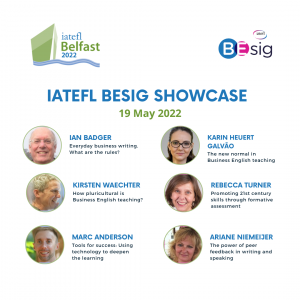
2021 Annual Conference (online)
Our 34th IATEFL BESIG Annual Conference took place online from Friday, 12 November to Sunday, 14 November 2021. The conference theme was “Business as Usual”.
Click here for the conference programme.
2021 Showcase and Open Forum at the IATEFL 54th International Conference (online)
IATEFL BESIG’s Showcase took place on Sunday, 20 June 2021 with a full day of sessions on BE topics. To round-off the day, the IATEFL BESIG committee updated members on the recent achievements and plans for the rest of the year in the Open Forum.
This was our impressive line-up of speakers and topics:
– 10:15 – 10:45 Barry Tomalin – New paradigms in business cultural training
This presentation, aimed at language teachers keen to extend their career into intercultural training, shows how to present yourself to employers as a business trainer to ensure results. It focuses on meeting business requirements, how to use appropriate business language in proposals and interviews and using a business-led methodology in training seminars. Sharp, practical and to the point, this presentation will give teachers and intercultural trainers ideas they can use in their own training.
Barry Tomalin is founder and Director of the International House Business Cultural Trainer’s Certificate, published author, editor and long-standing member of IATEFL and also of SIETAR.
– 11:00 – 11:30 Mary Sousa – Storytelling: a teaching tool for Business English teachers
This talk is about the importance of storytelling skills for Business English teachers, not only as teachers, but as human beings. Everyone tells stories, but telling them well requires certain skills. Participants will take away three business-based stories suitable for telling either in class or in a pub afterwards.
Mary Sousa integrates traditional and Internet-based methods. Also, she runs a unique bilingual discussion group with native speakers of English and Hungarian.
– 12:00 – 12:45 Marjorie Rosenberg – Bringing soft skills into the BE classroom: Activities that work
Business people are well aware of the importance of soft skills such as rapport, persuasion, cultural awareness and tolerance of others in communication. Come along to this workshop to get some ideas on how to practice these skills and integrate them into your training sessions.
Marjorie Rosenberg trains corporate clients in Austria and is an author of business English materials. She was the IATEFL BESIG Coordinator and IATEFL Past President.
– 14:10 – 14:40 Karin Heuert Galvão – Using DISC assessment to create result-oriented BE lessons
“All human actions have one or more of these causes: chance, nature, compulsion, habit, reason, passion, desire.” (Aristotle)
What if you could understand your students’ behaviors in a way that you could maximize their learning?
Join Karin for a journey through DISC assessment and how we can create result-oriented BE lessons!
Karin Heuert Galvão has been a teacher for nearly 20 years and the DoS at i-Study Interactive Learning. She is also a Behavioral Analyst and Coach.
– 14:55 – 15:25 Soroush Sabbaghan – Revealed EAP competencies for Pathways to Business stream
In the session, Soroush will outline six competencies that international students need when entering the Bachelor of Commence (BComm) program at the University of Calgary. The competencies were developed by analyzing 215 assignments in terms of task type and task complexity from five mandatory first-year BComm courses. Implications for EAP instructors and programs designers will be discussed.
Dr. Soroush Sabbaghan is Senior Instructor at the Werklund School of Education, Calgary. Work focus: transformational pedagogy, teacher education, enhancing learner experiences in digital environments.
– 15:55 – 16:25 Ariane Niemeijer – The Contingency Plan: An engaging English project for Business students
A project-based English course that has inspired Business students to take on their roles of company saviours as if they owned those companies themselves, while engaging in their classmates’ projects with the same vigour, learning English as they went along. Ariane Niemeijer will explain how and why she set it up the way she did so that others can be inspired to set up their own projects in similar ways. One of her secrets: learner autonomy.
Ariane Niemeijer works at Windesheim University of Applied Sciences, Zwolle, the Netherlands. Strong points: creative, analytical, flexible, structured; all essential for applying learner autonomy in a business school.
– 16:40 – 17:10 Graciela Alchini – Soft skills development for pre-service business English students
More often than not, pre-service business English students do not have the soft skills needed to succeed in the workplace. In this session, we will look at some strategies to help university students develop these abilities while enhancing their language and business communication skills.
Grace Alchini is a teacher of English and business communication and ESP trainer with over 35 years’ experience teaching at universities and providing in-company services.
– 17:25 – 18:10 Rob Howard & Maria Szugfil – IATEFL Business English Special Interest Group Open Forum – We mean business!
2020 Annual Conference (online)
Our 33rd IATEFL BESIG Annual Conference took place online on Friday, 13 November to Sunday, 15 November 2020. The conference theme was “Challenge and Change.”
Click here for the conference programme.
2019 Berlin (annual conference)
Our 32nd IATEFL BESIG Annual Conference took place at Wista conventions Adlershof, Berlin, Germany on Friday, 11 October to Sunday, 13 October 2019. The conference theme was “Back to Basics.”
Click here for the conference programme: Berlin conference programme
2019 3rd Online Symposium
Date: 22 June 2019
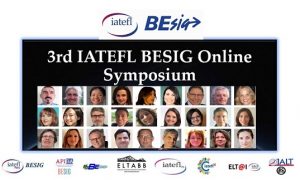
3rd IATEFL BESIG Online Symposium
22 June 2019 proved to be an important milestone for IATEFL BESIG, as on this day the IATEFL BESIG Online Team hosted the 3rd IATEFL BESIG Online Symposium. The theme of the event was Future-proofing Business English Teaching and was inspired by Michael Carrier’s keynote at the 31st IATEFL BESIG Annual Conference in Iasi 2018.
In seven hours we travelled the world and featured JALT BizCom SIG from Japan, ELT@I BESIG from India, IATEFL Hungary BESIG, IATEFL Poland BESIG, ELTABB from Germany, BRAZ-TESOL BESIG from Brazil, APIBA from Argentina, IATEFL Peru BESIG, as well as a segment from members of the IATEFL BESIG itself. All the slots featured exciting talks and interactive discussions and swap shops.
The special guest of the event was Michael Carrier himself.
Recordings of the entire Online Symposium are available in the Members Only area.
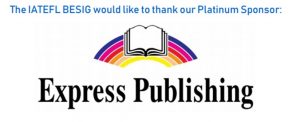
2019 Krakow (IATEFL Poland One Day BESIG Event)
Date: 11 May 2019
BESIG was delighted to again support IATEFL Poland’s 2019 business English event.
IATEFL News
2nd IATEFL Poland Business English Event






2nd IATEFL Poland One-Day Business English Event
in Cooperation with IATEFL BESIG
The 2nd IATEFL Poland Business English Special Interest Group (BESIG) Event took place at the Cracow University of Economics, Poland on 11th May 2019 in cooperation with IATEFL BESIG International.
The event was aimed at business English professionals both in Poland and other European countries. Under the heading: “New Ideas and Approaches in Business English”, the event provided a platform for a comprehensive overview of important aspects of business English, covering methods, materials, media and assessment. All business English stakeholders in further and higher education, e.g. educational establishments, teachers, teacher trainers, publishers and test providers, were invited to participate.
Programme:
08.30 Conference Reception Desk Opens
09.30 Opening Ceremony
09.45 Plenary Talk: “What else we teach “, Marjorie Rosenberg, Past-President IATEFL
10.40 – 11.15 Talks and Presentations
- ELT ‘on the brink of the 4th Industrial Revolution’: Philip Newman (France)
- BE for effective professional communication: Lucyna Wilinkiewicz-Górniak (Poland)
- Teaching teleconferencing: new approaches and challenges Maria Onyshchuk (Poland)
11.25 – 12.10 Workshops
- Business Partner: Sophisticated yet uncomplicated: Evan Frendo (Germany)
- Graphic Facilitation 101: Making Language Visual: Sherri Williams (Germany)
- Using a multi-thread approach to designing a BE syllabus: Marina Yesipenko (Ukraine)
12.20 – 12.55 Talks and Presentations
- Not WHAT but WHO, WHY and HOW?: Ron Mukerji (Poland)
- 1-2-1 training: the learners’ perspective: Andrzej Stęsik (Poland)
- Workplace is a complex communicative space and it is widely agreed that the BE classroom should replicate real life as much as possible. But does it?
Oksana Pelekhata, Anna Trofimova (Ukraine)
12. 55 – 13.45 Lunch
13.45– 14.20 Talks and Presentations
- Business Emails – Legal Secretary case study: Simon Porter (Poland)
- Applying a Self-Assessment Tool To Enhance BE Learners’ Transferable Skills: Olga Yashenkova (Ukraine)
- Bringing Language and Classes to Life through Blended Learning: Ricky Bland (Poland)
14.30 – 15.15 Workshops
- To BE or not to BE: Tech in the classroom?: Rob Howard (Poland)
- Bringing their Business into the Classroom: Annie Heringer (Germany)
- A Critical Approach to Listening Activities in a Business Classroom: Rob Adams (Poland)
15.25 – 16.00 Talks and Presentations
- Advantages of using CLIL in your Business English class: Aleksandra Macenowicz (Poland)
- Teaching and Assessing Presentation Skills in University Courses: Erica Williams (Germany)
- How to Promote Inclusion in BE classroom: Olena Korol (Ukraine)
16.00 – 16.15 Coffee Break
16.15 – 17.00 Workshops
- Keeping That Individual Student Stimulated – Tried and Tested Tips And Techniques :): Kasia Warszynska (Poland)
- Adding Value to Business English Lessons by Introducing a Second Language: Jason Chan (Germany)
- Adding Spice to The Business English Classroom: Marjorie Rosenberg (Austria)
- A New Life for Business Speaking Tasks: Daryna Luhovska (Ukraine)
17.10 – 17.45 Talks and Presentations
- Intercultural Competence in the Business English Classroom: Epameinondas Pettas (Poland)
- My Five Tips for Teaching Business English: Wiktor Łochiński (Poland)
- Marketing successfully in the Muslim World: Ridha Mejri (Germany)
- In-company Courses: Open and Close with an Impact: Mateusz Laskowski (Poland)
17.45 – 18.00 Closing Session




2019 Liverpool (IATEFL Conference)
Our Pre-Conference Event at the 2019 IATEFL Annual Conference was held jointly with the IATEFL Teacher Training and Education Special Interest Group.

Training (Business) English teachers to prepare learners for modern workplaces: Integration of soft skills
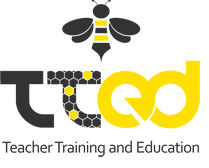

In a rapidly globalised world, adult English learners today typically need communication skills, such as negotiating, presenting and managing meetings, as well as soft skills associated with a workplace context, such as collaboration, teamwork and intercultural competence, to be employable.
Such soft skills are often described as transferable skills because they are not directly related to a specific position or job.
The challenge is complicated by the fact that English teachers tend to come to the job either with a background in ELT, but limited business experience, or with considerable business experience but lacking the know-how normally associated with trained language teachers. In addition, teachers may be required to teach in quite different contexts, (e.g. tertiary, language schools or in-company), contexts which place completely different demands on the teacher.
In this PCE, our aim was to explore how best we can prepare and support business English teachers in designing and delivering courses which integrate soft skills and help learners function more efficiently in today’s business world.
The day started off with talks/workshops by experienced practitioners in the field, before moving on to focus groups which each considered different parts of the challenge. The final discussion aimed to bring the key points and perspectives together.
Our speakers and events for the day were:
Understanding what we really mean by soft skills in the context of teacher education
The session will begin with getting participants to identify different types of soft skills (in a structured way), and fit them into a framework to create a common set of terms to help future discussion. We will link this to the Cambridge Framework for Life Competencies. We will then look at Can Do statements for soft skills that are part of the Framework, which will help participants to think about what those skills really mean in practice, and how they can adapt them to their own contexts. And finally, we will explore how the Can Do statements can be used to support teaching practice and learner evaluation.
Presenter: Ben Knight, Cambridge University Press
Ben Knight is Director for Language & Pedagogy Research at Cambridge University Press. He leads on using high quality academic research to develop more effective learning materials and resources. With his expertise in curriculum development and pedagogical research, he helps to underpin Cambridge’s educational resources with research-based insights and conceptual models. He has taught and worked in various countries around the world, with International House, the British Council, Cambridge Assessment, City & Guilds, and other schools and universities.
Incorporating workplace readiness skills: Successes, challenges and opportunities
Studies have demonstrated that strong English language competency is directly tied to higher salaries and increased employability. Yet despite these efforts, a surprising number of enterprises are reporting dissatisfaction with student English language readiness for the workplace. Most universities in non-English speaking countries either teach certain core content through the medium of English or require a strong level of competency to graduate at a B2 level or above.
In this talk, we will look at how Laureate Education, the world’s largest network of private universities, is approaching workplace readiness and how language departments of the network universities are contributing to this effort. We will pay attention to the dual role language plays as a tool to strengthen transversal competencies while being one of the competencies itself. We will discuss successes and challenges and suggest some possible routes for the future.
Presenter: Gordon Lewis, Laureate Network Universities
Gordon Lewis is Vice President, Languages for Laureate Higher Education, based in Princeton, NJ, USA. He earned a B.S. in Languages and Linguistics from Georgetown University, Washington D.C. and an M.S. from the Monterey Institute of International Studies, Monterey , California . From 1991-1999 he ran a language school for children in Berlin, Germany. From 2001 to 2004 he was Director of Instructor Training and Development for Berlitz Kids in Princeton , New Jersey . From 2004-2008 he was Academic Director of Kaplan English Programs, based in New York City. Gordon has served on the committee of the IATEFL Young Learners Special Interest Group and served as an editorial board member of ELT Journal. He is co-author of Games for Children and Grammar for Young Learners and author of The Internet and Young Learners, Teenagers, Making the Most of Technology, and Learning Technology, all published by Oxford University Press.
Employability: Supporting trainers in soft skills development
If a salesperson is failing to retain clients, if a team is unable to come to decisions easily, or if a company lacks that competitive edge, the chances are, there is a soft skills gap. Otherwise known as interpersonal, communication, transferable or people skills, soft skills are what effectively help a team maximize its technical know-how. Soft skills might include the ability to listen actively, build relationships or, manage time, but could equally include giving effective instructions, facilitating a meeting, or resolving conflict. With soft skills development (finally) now being included in mainstream Business English coursebooks, the time has surely come to ensure trainers are themselves ‘work-ready’ and in a position to improve their students employability by helping them acquire soft skills in English. This talk will consider how best to support trainers in their understanding of the rationale behind soft skills as well as provide tips and hints , including techniques from other sectors, to meet the employability demands of our Business English learners.
Presenter: Ros Wright, Freelance 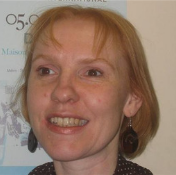
With an MA in ELT Materials Development, Ros Wright is a teacher trainer, materials writer and trainer, specializing in medical English. She has written several ESP titles and is currently part of the team writing Business Partner for Pearson. A former President of TESOL France, Ros is now a Trustee of IATEFL.
Focus Groups 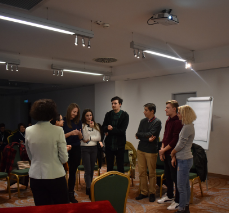
After lunch we moved on to focus groups which each considered the different parts of the challenge. The final discussion aimed to bring the key points and perspectives together.
See the full program here.
2019 IH Barcelona Annual Conference
BESIG is delighted to have been a part of IH Barcelona’s 2019 annual conference with a business English strand of three talks:
Personalised input: minimum prep & maximum impact
Rachel Appleby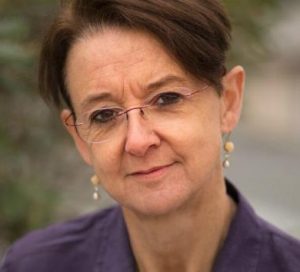
When the course book just isn’t enough, and you want to respond more closely to your students’ needs and interests, it’s easy to spend hours surfing the web, or rummaging through other books – or even inventing something yourself. Where does the time go?
This workshop looks at five ways to relate easily to our students. Each idea is quick to implement, and will get your students involved and chatting. Their interests will remain at the centre of learning, and they’ll leave class on a positive note, because we’ve demonstrated an interest in them as individuals!
Teaching One-to-One
Helen Strong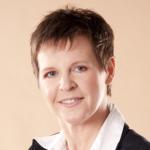
Many business English (BE) professionals prefer to learn in a 1:1 setting. But how can we be sure we are meeting our learners’ needs 100% and using effective and appropriate teaching techniques? How is teaching 1:1 different from teaching groups? Where can we get our BE teaching materials? How can we effectively give feedback to our 1:1 BE learners?
Whether you are new to 1:1 teaching or you are a seasoned expert looking for inspiration, come along to this workshop to discover answers to these questions!
The effects of internationalisation on business English students’ needs and expectations
Mandy Welfare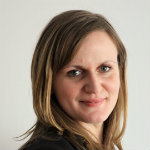
Through globalisation and internationalisation, our role as business English trainers is changing. We’re being asked to not only train our students’ language abilities but also their intercultural competence.
This workshop will explore the diversity of students’ needs and expectations in 2019, drawing on research I did for my Masters thesis with university HR and admin staff. We’ll discuss our class profiles and needs, and I’ll go on to demonstrate classroom techniques and activities which can be used to incorporate intercultural competence in our business English training.
2018 Iasi (annual conference)
Our 31st IATEFL BESIG Annual Conference took place from 16-18 November 2018 at the Hotel International, Iasi, Romania. The conference theme was “Exploring the frontiers of business English”
Click here for the conference programme: BESIG Conference programme
2018 JALT BizCom SIG & IATEFL BESIG Event
JALT BizCom SIG & IATEFL BESIG event
IATEFL BESIG supported the Business Communication Special Interest Group of the Japan Association for Language Teaching in their conference that took place at Toyo University, Tokyo on September 8-9, 2018.
Website link for all information and downloadable brochures: JALT BizCom Sig
2018 Warsaw (IATEFL Poland One Day BESIG Event)
IATEFL BESIG were proud to be supporting IATEFL Poland in holding their first one-day BESIG Event, which took place at Warsaw University of Technology on Saturday, 19 May. It was a tremendous success. Click on the link below for the program and more information:
2018 Brighton (IATEFL conference)
We held two events at the IATEFL Annual Conference in Brighton – a World Café on 9 April 2018 and a day of business English talks on 12 April 2018. Click on the links below to find out more:
2017 Malta (annual conference)
The 30th Annual Conference, held in cooperation with IATEFL ReSIG, took place in Salina Bay, Malta from 10-12 November 2017.
It was another successful event and we received extremely positive feedback. We are grateful for all the support given by the sponsors, exhibitors, speakers, delegates, IATEFL Head Office and the Salini Resort in Malta. We are especially grateful to those members who gave their time, effort, dedication and enthusiasm to ensure that this event ran as smoothly as possible.
CONFERENCE SELECTIONS
Access a linked and clickable pdf version of the Malta conference proceedings here: IATEFL BESIG Malta CS
SPEAKER SLIDES
Click here to access and download the slides which have been provided by some of the speakers. Please contact the speakers directly if you have questions about the content of their slides.
PHOTOS FROM THE EVENT
Click here to view a selection of photos taken at the event. Please feel free to share and distribute the photos in your networks. You may also use them for your own personal purposes. Please credit Rudi Distl when you use them.
SIMULCAST TALKS
A selection of simulcast recordings can be found online using this link:
INTERVIEWS WITH THE DELEGATES
Many thanks to our Roving Reporter Analía Duarte for tirelessly uploading photos to our social media channels and for conducting interviews with the participants throughout the conference. Here are some of the people Analía spoke to (video edited by Rob Howard):
CONFERENCE VIDEO
Many thanks to BESIG Online Team member Rob Howard for putting together this short video as a memento of the event:
CONFERENCE PROGRAMME (view in external reader)
2017 Online summer symposium
IATEFL BESIG was delighted to host its second online symposium on Sunday, 25 June 2017.
This event was co-hosted with five business communication and business English SIGs from around the world: the Japan Association for Language Teaching Business Communication SIG (JALT BCSIG), BESIG Hungary, ELT@I BESIG in India, Braz-TESOL BESIG in Brazil, and the Asociacion de Profesores de Ingles de Buenos Aires Business English SIG (APIBA BESIG).
The symposium’s theme was BESIG(s) around the world, and focused on linking and strengthening business English ties internationally, sharing best practices across borders, and exploring global BE training contexts.
Each partner SIG had its own slot on the event’s programme; starting in Japan with JALT BCSIG and moving across the times zones as the day progresses, before finishing with the day’s finale from APIBA BESIG in Buenos Aires, Argentina.
It was a very successful event and you can find the program flyer and speaker information below:
2017 Glasgow (IATEFL conference)
We held two events at the IATEFL Annual Conference in Glasgow. Click on the links below to find out more:
2016 Munich (annual conference)
The 29th Annual Conference, held in cooperation with MaWSIG, took place in Munich, Germany on November 4-6, 2016.
Below you can access the programme, live recordings, photos, presentation slides and other media links from this event:
- Online conference programme here.
- Live-stream recordings here: Munich Live-Stream Recordings
- View, download and print the official photographs from the event here. (Credit: Rudi Distl)
- Presentation slides and other media here.
- Linked and clickable pdf version of the Munich conference proceedings: IATEFL BESIG Munich Conference Selections 2016
2016 Online summer symposium
On Saturday, June 18, 2016, IATEFL BESIG hosted its 1st Online Symposium. It was an exciting and varied programme of pecha kucha, webinars, and a Question Time panel discussion on the topic of Business English in the era of global English.
You can access the speaker information, topic details, and all the links and recordings below:
Symposium programme and links here: Pecha Kucha, Webinar, and Panel Discussion Recordings
2016 Birmingham (IATEFL conference)
We held two events at the IATEFL Annual Conference in Birmingham – a Pre-Conference Event on April 12th and a BESIG Day on April 13th with various speakers and Business English topics and activities. Click on the links below for the flyers:
IATEFL BESIG Pre-Conference Event (PCE) – April 12, 2016:
- BESIG PCE 2016 description
- Speakers and topics-1 IATEFL BESIG PCE 2016
- Speakers and topics-2 IATEFL BESIG PCE 2016
IATEFL BESIG Day – April 13, 2016 – Business English Presentations list:
2015 Sitges (annual conference)
The 28th IATEFL BESIG Annual Conference took place in Meliá Sitges – southwest of Barcelona, Catalonia, Spain on the 13 – 15 November 2015.
To find out more about the sessions and speakers at the conference, download the sessions overview and full schedule below:
2015 Budapest (summer symposium)
IATEFL BESIG Summer Symposium 2015. A Joint IATEFL BESIG and IATEFL Hungary Summer Symposium was held in Budapest, Hungary on June 20, 2015.
Business English for Specific Purposes: What do our learners really need?
To find out more about the session and speakers at the symposium, click on the links below:
2015 Manchester (IATEFL conference)
We held two events at the IATEFL Annual Conference in Manchester – the Pre-Conference Event (PCE) in cooperation with TEASIG on April 10th and BESIG Day on April 13, 2015. Click on the links below to access the flyer and programme:
- BESIG Day – You can download the flyer here:
- BESIG/TEASIG Programme PCE 2015
2014 Bonn (annual conference)
The 27th IATEFL BESIG Annual Conference was held on 14 – 16 November 2014 in Bonn, the former capital of the Federal Republic of Germany at the Sankt Augustin Campus, Hochschule Bonn-Rhein-Sieg.
You can download the schedule, speaker and topic details, and the speaker slides below:
Full Schedule IATEFL BESIG Bonn 2014
2014 Graz (summer symposium)
The BESIG 2014 Summer Symposium was held on June 13-14, 2014 in Graz, Austria. Our focus was:
Putting the research to work: research, practical applications and materials in business English teaching.
At this event, Evan Frendo, was the Plenary speaker. More information in the link found below.
You can download slides and handouts from speakers at this event below:
2014 Harrogate (IATEFL conference)
At the 2014 IATEFL Conference in Harrogate, UK BESIG held two events, the BESIG Programme Day and the Pre-Conference Event (PCE).
The BESIG Programme Day took place on Thursday, April 3rd, 2014 and the Cambridge sponsored PCE took place on April 1, 2014 with the theme: How to teach business skills while teaching business english.
To download the BESIG PCE information please click here: 2014 Harrogate (IATEFL Conference) Speaker Presentations
2013 Prague (annual conference)
The 26th IATEFL BESIG Annual Conference was held on November 8-10, 2013 in Prague, Czech Republic at the Prague Congress Centre.
Please download the slides from the conference presenters links found here : 2013 Prague (annual conference) Speaker Presentations
2013 Online (summer symposium)
IATEFL BESIG hosted a landmark event on June 15th, 2013, its 1st IATEFL BESIG Online Conference.
The 1st IATEFL BESIG Online Conference was a full day consisting of online workshops, plenary talks and practical ‘how to’ sessions. It was free and open to everyone with an interest in Business English.
The conference had two plenaries, twenty workshop sessions and eight shorter “how to” sessions. It ran from 7:00 GMT to 15:00 GMT on the Adobe Connect platform.
Our plenaries and workshop sessions focused on the creation, development, selection and exploitation of materials in business English and ESP contexts as well as the integration of digital materials and m-learning into the field of Business English.
You can download the conference programme here:
2012 Stuttgart (Annual Conference)
Videos from the conference can be viewed here:
Photos from the conference can be viewed here:
Speaker presentations
Please use the links below to download any of the presentation materials you may be interested in. If no link is available, please contact us and we will contact the speaker to request their materials.
Analysing corpora to teach financial English
Your politeness or my politeness_politeness matters in international communication
Workplace English 1 and 2_final
Working with authentic listening materials_a practical session
What to be actually aware of in international encounters
What are good criteria for the assessment of business English performance_Judith Mader
The vocabulary challenge_bilingual or monolingual
Teaching Business English for Arab Learners
Teaching and Learning Busines English and Technical English with TechnoPlus English 2.0
Strategies for dealing with sporadic attendance in business English courses_BESIG 2012 (1)
Seven blended learning course ideas for BE learners
Making the transition from business English trainer to intercultural trainer
Lexical affinities finding out who your friends are
Learn to write ELT materials and get published
Internationalisation and the role of English in tertiary education
Integrate or Disintegrate for BESIG website
How to Talk to Difficult Students Revised BESIG
Five ways to use Moodle to enhance your business English course
Finding your focus in a focus on form approach_Marise Lehto
Do we need to analyze the way we analyze needs
Developing skills through real meeting recordingsC
ommunicating across cultures _ Besig 2012
Business Skills and Business English
Business Learners’ Beliefs BESIG 2012 Gareth Humphrey (1)
Bringing management training into the business Engish classroom
Bringing BEC Vantage to Life BESIG 2012 6 slides
Apptivities for business English
Preparation for the TOEFL and GRE tests
Nik Peachey – Taking care of your own continuing professional development (CPD)
2012 Paris (summer symposium)
The 2012 Summer Symposium on Teaching Professional English is in cooperation with TESOL France and was held in Paris on Saturday, June 16th.
Our Keynote speaker this year was David Crystal.
IATEFL Patron David Crystal spoke on the topic Language and the Internet.
What influence is the Internet having on language, and what is happening to language as it comes to be used on the Internet? There is a great deal of misleading popular mythology, which needs to be replaced by precise linguistic description. The talk presented the view that the Internet is in some respects a linguistic revolution, introducing new opportunities for communication, but that its influence on individual languages has so far been quite limited.
Professor David Crystal is one of the world’s foremost authorities on language. An internationally renowned writer, editor, lecturer, and broadcaster, he received an OBE in 1995 for his services to the English language. He has authored and edited over 100 books, including The Cambridge Encyclopedia of Language, The Stories of English, and Language and the Internet. Internet Linguistics: A Student Guide and The Story of English in 100 Words were published in 2011.
You can visit David’s website here: DavidCrystal.com
You can download the information of the event here:
BESIG Summer Symposium Preliminary Programme 2012
Best Presentation Award Winners
The University of Central Lancashire (UCLan) was proud to sponsor the Best Presentation Award at the BESIG Summer Symposium 2012. The award was established to encourage the development of good practice in relation to teaching, materials development and research in the area of international business communication (IBC). The “UCLan IBC Best Presentation Award” recognises the best first time presenter at an IATEFL BESIG conference according to the following criteria:
- The content of the presentation (e.g., originality and significance of the theme)
- The quality of the presentation (e.g., design, structure and layout)
- The delivery of the presentation (e.g., clarity, persuasiveness, Q&A session).
The award was made during the closing panel where a certificate and GBP 200 prize was presented to the winners.
The Award winners
Joint first prize winners are:
Eric Halvorsen, based in France
Task-based Language Teaching for One-to-one Business English Contexts
and
Luke Thompson & Andy Johnson, based in the UK
Creating Contextual Narrative-based Course Material for Young Business English Learners
Third prize winner:
Vicky Loras, based in Switzerland
Word of the Week and Other Ideas for Business English Classes
The Judges:
The judges were:
Vera Dickman, Director, Dept Languages et Cultures, Telecom Paris-Tech
Delia Jackson, UNCLAN
David Leeming, UNCLAN (chair)
Ákos Gerold, IATEFL BESIG Development Coordinator
Videos: Interviews and Sessions Recordings:
2012 Glasgow (IATEFL BESIG PCE) - no links
2011 Dubrovnik (annual conference online)
The 2011 BESIG annual conference online was held in Dubrovnik, Croatia on November 18-20th. We had set up online events and viewing which delegates coud access by using this link below for the videos, schedules, speaker topics, and speaker information:
BESIG Annual Conference Online
We broadcast some online information using our youtube channel. Here is an ad about this event with some of our organisers:
Plenary speaker: Jeremy Comfort
Jeremy Comfort’s Keynote Presentation was on ‘What’s Culture Got to Do with Business?’
The recordings can be viewed in HD quality on the BESIG YouTube Channel here:
This year BESIG also offered a programme of sessions that were simultaneously broadcast live so that the audience in Bielefeld could be joined by an online audience. A special thanks to BESIG Online Team (BOT) member Mercedes Viola, who not only presented the final session, but also provided online support throughout the four-hour programme. A very special thanksto Cornelia Kreis-Meyer for providing invaluable technical support drring the session, and of course a big thank you to the speakers – Candy van Olst, Cleve Miller, Jeremy Comfort and Mercedes Viola for very bravely taking part in this experiment.
Mercedes Viola
Click here to view the recording on the BESIG YouTube Channel: The knowledge we share, the role we fulfill
2011 Preston (summer symposium)
2011 Summer Symposium was held in Preston, UK on June 24-25 with the theme: Teaching Business English with Digital Technologies
Please click on the links in this document: 2011 Preston, UK Summer Symposium Simulcast Links
2011 Brighton (IATEFL BESIG PCE & Programme Day)
The 2011 IATEFL PCE & Programme Day theme for the IATEFL BESIG Pre-Conference Event (PCE) was: Professional English Trainers: Where Are We Now? Where Should We Be Tomorrow? We would like to thank Trinity College London for their generous sponsorship of the event.
Speakers & Workshops
Carol Bausor: Professional English Trainers, time to start selling instead of selling ourselves short
CEO of International Language & Training Consultants, Lyon, France
Working in schools, academic institutions, or else independently, we Professional English Trainers seldom have direct access to a management model which can fast forward our own career path. How then can we pilot our working life towards both financial and intellectual success? Carol will be leading a very practical session, during which the question “What’s stopping you from earning more money in EFL?” will be clearly addressed.
Carol Bausor is English, but she fell in love with France at the age of 13, and, arranged to move there (ostensibly for one year) . Over 30 years later, she’s still there, still enjoying life, France, and her job. Today working as a Company Manager, she still finds time to teach English to French corporate trainees, and conduct Coaching Sessions (she’s a qualified NLP trainer) in Success strategies. Carol has taught English in France, and in North and West Africa, to students aged from 3 to 75, is particularly interested in how “limiting beliefs” stop people from doing things, and how to instill more effective mind-sets, in situations such as EFL teachers’ professional advancement.
Deborah Capras: Professional English trainers: the materials, the pedagogy and the technology
Deputy Editor of Business Spotlight
How far have the demands on professional English trainers changed over the last ten years? What do learners expect from trainers regarding the use of material, pedagogy and technology? Deborah Capras will present research carried out by Business Spotlight, the leading magazine for learners of business English in Germany, and will look at dominating trends in the industry — and at what might lie ahead.
Deborah Capras is the deputy editor at Business Spotlight. An experienced business English teacher and teacher trainer, she takes a particular interest in material design, web-based training and new technologies.
Maurice Cassidy: Company Language Assessment – professionally
Director, Executive Centre IH London
Making the move from small scale BE teaching to working with large corporate clients not only demands a re-calibration of the trainer’s classroom skills, it also requires nurturing of a new realtionship – namely that with the company training manager. This short talk draws on experience with different players in this arena, and provides pointers to those wishing reap the rewards of the extra responsibility thrust on the corporate ELT professional. Particular reference will be made to assessment tools and their role in providing positive outcomes for all concerned.
This talk was sponsored by ESOL
MauriceCassidy has experienced a variety of roles in business English over the last 18 years. Although based in London managing a team of around 30 trainers, work has provided new challenges in places such as Italy, Russia and Kazakhstan during this time. His interests include using new technology to further the excellence of classroom teaching.
Huan Japes: Training Teachers to be Trainers
Chief Examiner DipTESOL, Trinity College London
We will begin by looking at the competences typical of a teacher with an initial certificate and one year’s post-certificate teaching in a general English context. Clearly, certain competencies that such a teacher possesses are transferable to a role as a trainer in a business English context, but what additional teacher training is required. We will look at both the skills and knowledge that a short course of training needs to focus and build on, making reference to the English UKL/Trinity College London CertIBET (Certificate in International Business English Training).
Huan Japes has worked in Italy, the UK, Russia and China for Saint George International, EF English first and Trinity College London. He is currently Chief examiner TESOL for Trinity College London. He has wide experience with teacher training programmes at certificate and diploma level and has particular interests in professional development and e-learning.
2010 Bielefeld (Annual Conference)
In 2010 the IATEFL BESIG Annual Conference returned to Bielefeld in the very building where it was first held in 1988.
Photos from this event can be viewed here: Bielefeld 2010
This year we interviewed delegates and committee members which can be viewed on our youtube channel below:
Keynote Speaker: Mark Powell – Lean Language: Streamlining Business English and you can view his talk below:
2010 Harrogate (IATEFL BESIG PCE & Programme Day)
The 2010 IATEFL BESIG PCE & Programme Day theme: Business or Business English? This year’s event was sponsored by Cambridge ESOL.
Speakers & Workshops
The speakers and their topics in order of appearance were as follows:
Ian Badger: Business English trainers – knowing our limits, developing our competences
Rita & Duncan Baker: Frameworks for task-based learning: how to avoid chucking out the baby with the bath water
Mark Waistell: The Anatomy of a Business English Teacher … “The Sequel!”
Rhonda Bowen: Professional Business English Training
Bob Dignen: Beyond Language – Towards Communication Coaching
Deshini Chetty: Assessing Business English
2010 Programme Day Information
Speakers & Sessions
Session 1.1 (10.40 – 11.40)
Robert Feather
Workshop
Bring work reality into the business English training session
Session 1.2 (12.15 – 13.00)
Adrian Pilbeam
Talk
Understanding the role of culture in international business
Session 1.3 (14.00 – 14.45)
Delia Jackson
Talk
Insights into the dynamics of multicultural teams
Session 1.4 (15.00 – 15.30)
Open Forum
Business English Special Interest Group Open Forum
Session 1.5 (16.05 – 17.05)
Marjorie Rosenberg
Workshop
Getting Business English learners to speak
Session 1.6 (17.20 – 17.50)
Petra Pointer
Talk
What students can get out of Twitter
Session 1.7 (18.05 – 18.50)
Robin Walker
Talk
The globalization of English: Implications for the business English classroom
2010 Rome (Summer Conference)
The 2010 Summer Conference was held at the University Roma Tre, Rome, Italy on June 25-26th.
Speakers & Presentations:
Here is a selection of talks from the event
The little extra that makes the difference
Speakers: Marjorie Rosenberg and Marie-Louise Cuyt
Summary:
Supplementary materials have a number of uses in the business English classroom. For teachers using a course book, they can be implemented as a way to reinforce and recycle vocabulary and grammar, to provide more opportunities for speaking or to simply liven up a class. For those who create their own materials, they can be used as valuable timesavers integrated into the curriculum. For trainers teaching one-to-one, they can be invaluable as they deal with a topic while providing practice materials. An added benefit is that use of extra materials enables the trainer to reach a wide range of learner types. This workshop will present a variety of supplementary materials which make use of the elements above. They have all been used in a variety of classes in secondary, tertiary and adult education and can be easily adapted to different classroom situations.
Biographical information:
Marjorie Rosenberg has been teaching both general and business English for almost thirty years on the tertiary level and for corporate clients in Austria. She is an active teacher trainer and travels throughout Europe holding seminars and workshops on topics such as learning styles, cooperative learning, and NLP. Her publications include Communicative Business Activities, öbvhpt, Vienna 2001, In Business, CUP, 2005, and two series of textbooks for Austrian schools. She is also a contributing author to Cornelsen and Macmillan projects. At the moment she is creating several courses for english360. In addition, Marjorie is currently the joint-coordinator of the IATEFL BESIG committee.
Marie-Louise Cuyt has been teaching both general and business English for 25 years. She works with tertiary students and trains business people in a number of companies. In 2008 she successfully completed a course of study on Teaching English for Business presented by Mark Powell and was awarded the English UK/LCCIEB Certificate in Teaching English for Business. Marie-Louise is also a Cambridge ESOL Oral Examiner.
Using e-feedback in large classes in a business writing course
Speakers: Debbie Lahav and Ms Lisa Amdur
Summary:
“Business English” is a specialized compulsory writing course in the undergraduate program for Business Administration at Ruppin Academic Center in Israel. The course takes a process approach to writing instruction and is based on the assumption that writing development is contingent on extended writing practice together with responsive, customized, and on-going feedback which research has shown to be essential for writing development.
In designing the course, the following constraints were taken into consideration: (a) class size (n=38), (b) limited time (28 academic hours), (c) heterogeneity of the learners, and (d) work load of the instructor in providing feedback. Technology, in particular, the use of the MOODLE platform, has enabled us to address all these constraints,.
In this presentation, we will describe the units of study that make up the course. We will particularly focus on the provision of e-feedback and share our students’ attitude to it.” Biographical information:
Debbie Lahav has an MA from Haifa University in Linguistics, specializing in SLA. She has taught high school, adult EFL, business English and EAP. Currently she is teaching EAP and Business English at Ruppin College and working for Hebrew University, heading PD projects for in-service EFL teachers. Ms Lahav is actively promoting the integration of technology in English instruction.
Lisa Amdur is a doctoral student at Tel Aviv University, specializing in language testing. She has taught English at all levels of education, from elementary school through to college. She is currently teaching EAP and Business English at Ruppin Academic Center and is a teacher trainer at Beit Berl Teachers College. Ms. Amdur also coordinates the English curriculum committee at the Ministry of Education.
English360 – Collaboratively co-creating Business English courses and content
Speaker: Valentina Dodge
Summary:
Business English teachers are using web media to grow and reflect together. Educators around the world are sharing content, classroom activities and expertise with a network of colleagues – whether in the same staff room, city or on the other side of the world, authoring of courses and inspiration for lesson ideas has no boundaries. English360, a web-based platform is now available to further facilitate this co-development of material or courses. This workshop shows how the community of English360 users collaborate with each other to publish and share lesson activities and courses. The session has a practical focus related to on-going course design, progressing needs assessment and tagging. It outlines the benefits of blended and online BE courses. Participants will take part in discussions on how to address some of the challenges of this new mode of delivery: integrating authentic material, dealing with plagiarism, increasing awareness of copyright and Creative Commons.
Biographical information:
Valentina is Teacher Community Coordinator for English360 where she helps educators provide personalised business English learning programmes to meet their student and customer needs. She collaborates with and supports business English language teachers all over the world to help them publish and share lesson and courses for blended or online delivery. She organizes training sessions and support forums on instructional design and blended course organization to allow educators to combine their own materials and lesson plans with high quality course material from Cambridge University Press.
Collaboration in ESP course design and delivery: ideas, models and experiences
Speaker: Nick Robinson
Summary:
Collaboration in the context of ESP course design and delivery involves a set of working practices between a language specialist and a subject specialist. The aim of the collaboration will vary from case to case but is usually two-fold: to better meet students’ needs by providing the best possible mix of credible and authentic professional content and relevant language focus and development; and to help the language specialist better navigate the intricacies of a field that he or she may not be fully trained or conversant in. In this talk, we will examine how these aims can be met and discuss what is necessary from both sides in order for a successful collaboration to take place. We will draw on examples of collaboration from current ESP practitioners as well as from several ESP titles from Cambridge University Press, including Cambridge English for Marketing, written by myself in collaboration with the Chartered Institute of Marketing (CIM).
This talk will be a commercial presentation on behalf of Cambridge University Press.
Biographical information:
Nick Robinson taught English in Spain, specialising in English for Specific Purposes (ESP) and Business English. He then worked for Cambridge University Press as a Marketing Executive and as an Editor on the ESP list. In 2007, he moved to York to become a freelance author, editor and trainer. He is the author of ‘Cambridge English for Marketing’, the ‘Infotech’ 4th Edition Online Workbook, and the ‘English Vocabulary in Use Elementary’ CD-ROM 2nd Edition. He is the co-author of the ‘face2face’ Advanced Teacher’s Book; the ‘English Unlimited’ Elementary, Pre-intermediate and Intermediate Self-study Packs; and ‘Let’s Talk Online’, an online speaking and listening course. Since November 2009 he has been a Brand Manager at Cambridge University Press.
Death By PowerPoint (And How To Avoid It.)
Speaker: Seth Dickens
Summary:
Business English teachers and Business English students have something in common when it comes to PowerPoint; they have usually been bored to death by it more times than they’d care to remember.
In this presentation I will show participants simple, practical ways to improve their own PowerPoint slides. We will also discuss two simple but effective lesson activities:
Creating simple but powerful visual contexts for conversation lessons using PowerPoint. These contexts draw students into the lesson and inspire classroom debate.
Creating stunning slides for business lessons. While presentation skills are vital for business students, even the most fluent student’s presentation will flop if the slides that accompany it are deathly dull. My simple suggestions will help teachers gain enough confidence with slide design for them to pass ideas onto students and use PowerPoint for class projects.”
Biographical information:
I am a language teacher, teacher-trainer and educational technology consultant based in North Italy. I am particularly interested in helping teachers incorporate technology and Web 2.0 tools into their teaching in simple and practical ways.
My “main” job is at a high-school near Trento. I teach subjects like economics, psychology, and Biology in English, using engaging Web 2.0 tools.
I also work with various schools and agencies including E.U. funded projects, the local education authority and private language schools. I wrote several modules of an online language-teacher-training course for EAQUALS, which I am now tutoring for the Technical University of Dresden.
Help! My learners need English to work in Asia.
Speaker: Evan Frendo
Summary:
This scenario is becoming very common in many companies, and trainers are having to adapt or create materials accordingly. Yet often those trainers lack any experience of Asia themselves, and it can be difficult to remain credible. In this session I will discuss some of the needs of learners who need English for Asia, and then look at ways we can meet these needs, focusing both on improving language competence as well as intercultural communication competence.”
Biographical information:
Evan Frendo is a freelance trainer, teacher trainer and author, and has been involved in Business English training and consulting since 1993. Currently based in Berlin, he lived in Singapore from 2003-2006,
working with German expats needing English to work in Asia. Nowadays his work for various corporations and clients takes him regularly to different parts of Europe and Asia. He has published various books and
articles over the years, including How to teach Business English, (Longman, 2005), and the Double Dealing series of coursebooks (Summertown, 2004-2006), with James Schofield. His most recent book is Working in Asia(Cornelsen, 2010) which he co-authored with Shuna Hsu.
English for human resources management (workshop)
Speaker: Pat Pledger
Summary:
“Human resources covers a multitude of people management issues over and above the recruitment process – what are they and how can you teach the vocabulary and technical jargon? Join me to look at what your personnel professionals, recruitment agencies or line managers will be needing in English and how you can help them to succeed. ”
Biographical information:
Pat Pledger spent 20 years in human resources management in London, before relocating to Germany and setting up as a business English trainer 20 years ago. Running a small business English consultancy in Hamburg, Germany, Pat works closely with many companies in northern Germany, but her main specialty is human resources training in English. www.pledger-bet.de Her book, ‘English for Human Resources’, has been published in Germany, the UK, China and other countries.
Pat Pledger – English for Human Resources Management Workshop
2009 Poznan (annual conference) no links
details will follow soon
2008 Bonn (annual conference)
The 2008 IATEFL BESIG Annual Conference was held at the Fachhochschule Bonn-Rhein-Sieg in St. Augustin, Bonn, Germany on November 21-23rd.
Plenary Speaker: Mike McCarthy
The plenary speaker was Mike McCarthy, speaking on Doing business with a spoken corpus.
Speaker presentations
Here is a link to the full programme giving details of the speakers and their sessions: 2008 IATEFL BESIG Annual Conference Programme.
If you would like a copy of the materials used by a speaker in one of the sessions please contact us here [email protected] and provided the speaker made this available we will be happy to send it to you.
2007 Berlin (annual conference)
The 2007 IATEFL BESIG Annual Conference took place in Berlin, Germany 16 – 18 November 2007.
Plenary Speaker
The plenary speaker was David Graddol, speaking on The future of ‘English for Business’ and ‘The Business of English’.
Speaker Presentations
Here is a link to the full programme giving details of the speakers and their sessions: 2007 IATEFL BESIG Conference Programme
If you would like a copy of the materials used by a speaker in one of the sessions please contact us here [email protected] and provided the speaker made this available we will be happy to send it to you.
2006 Milan (annual conference)
The 2006 IATEFL BESIG Annual Conference took place in Milan, Italy 08 – 10 December 2006.
Plenary Speakers
The joint plenary speakers were Gabriele Eilert-Ebke, Evan Frendo and Jeremy Comfort, speaking on Current State and New Directions.
Speaker Presentations
Here is a link to the full programme giving details of the speakers and their sessions: 2006 IATEFL BESIG Conference Programme.
If you would like a copy of the materials used by a speaker in one of the sessions please contact us here [email protected] and provided the speaker made this available we will be happy to send it to you.
2005 Monaco (annual conference)
The 2005 IATEFL BESIG Annual Conference took place in Monaco, France 11 – 13 November 2005.
Speaker Presentations
Here is a link to the full programme giving details of the speakers and their sessions: 2005 IATEFL BESIG Conference Programme.
If you would like a copy of the materials used by a speaker in one of the sessions please contact us here [email protected] and provided the speaker made this available we will be happy to send it to you.
